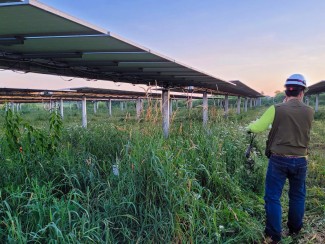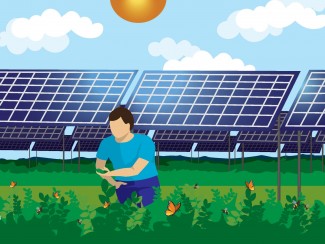
Scientists, according to work published in the Nature Energy science journal, say they have developed a new type of ultra-thin photovoltaic device, coated on both sides with stretchable and waterproof films, which can continue to provide electricity from sunlight even after being soaked in water or being stretched and compressed. The scientists from the Japan-based research institute RIKEN and the University of Tokyo, according to an 18 September press release, have developed extremely thin and flexible organic photovoltaic cells (these convert sunlight into electricity), based on a material called PNTz4T, which they had developed in earlier work.
The ultra-thin device was then placed on to an acrylic-based elastomer (rubbery material composed of long chain-like molecules, or polymers) and the top side of the device was coated with an identical elastomer, giving it a coating on both sides to prevent water infiltration. The elastomer, while allowing light to enter, prevents water and air from leaking into the cells, making them more long lasting than previous experiments.





